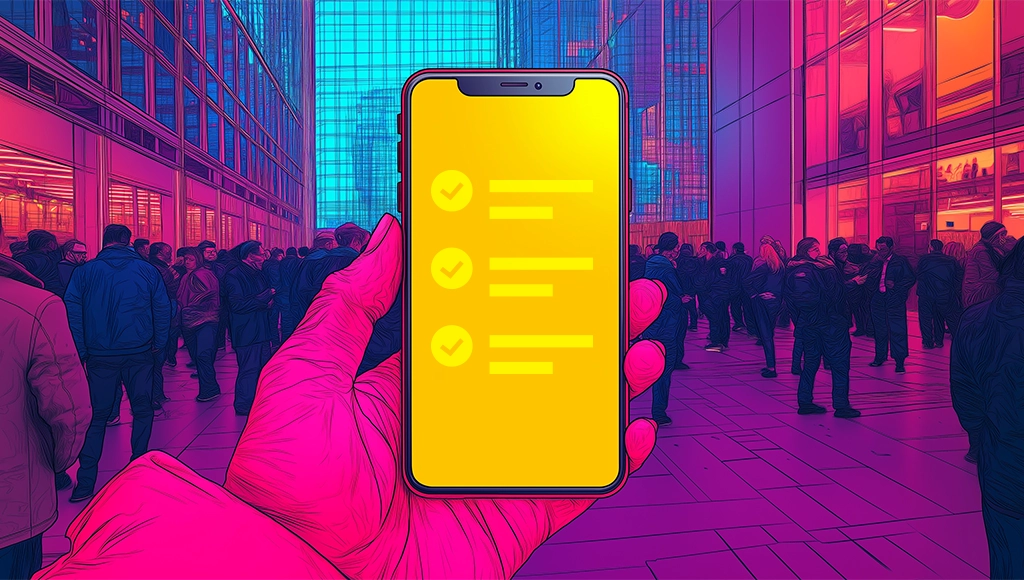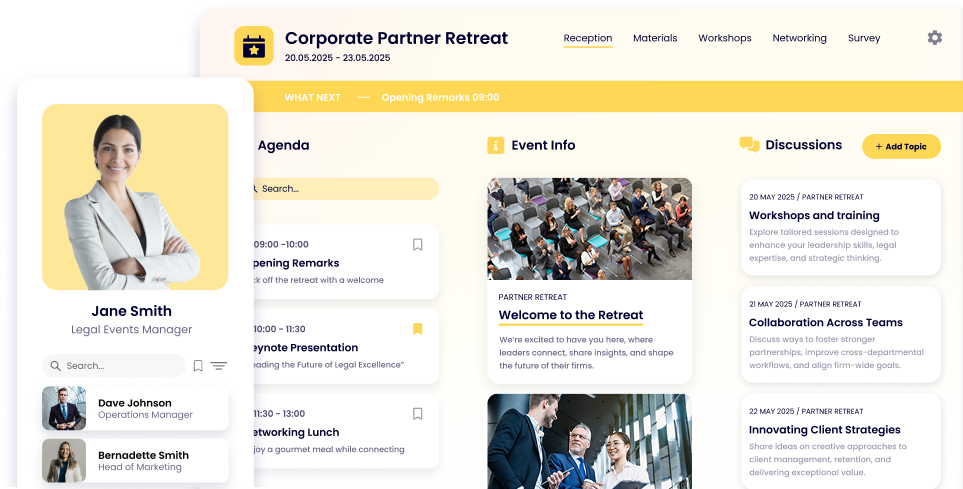Top Strategies for Corporate Event Production Success

Lisa Broom | Head of Marketing

Corporate event production involves coordinating planning, technology, and creative elements to produce engaging business events. This article explores key production components, the roles of planners and managers, different event types, and effective strategies for overcoming common challenges.
Key Takeaways
- Corporate event production merges technology and creativity, focusing on key components like staging, audio-visual solutions, and lighting to create impactful experiences.
- An effective event production team is crucial, requiring clear roles and collaboration to manage logistics and technical aspects for successful execution.
- Enhanced audience engagement through interactive elements and personalization strategies significantly improves attendee experience and satisfaction at corporate events.
Understanding Corporate Event Production
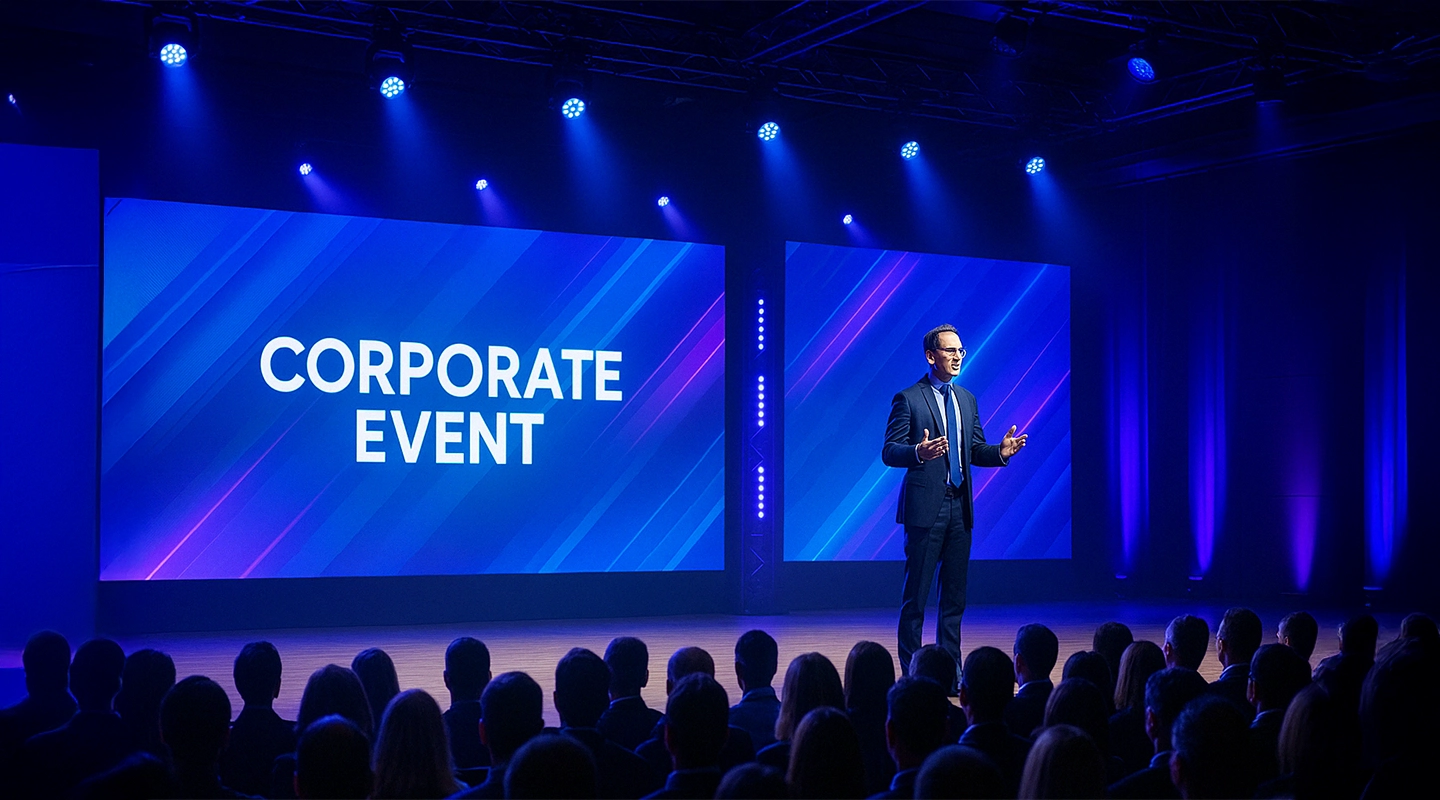
Corporate event production combines technology and creativity to bring an event to life, using sound, lighting, video, design, and more to create a memorable experience. A well-executed corporate event design can elevate business meetings and create lasting impactful moments for participants.
Event planning focuses on pre-event activities, while event management oversees the project during the event. Event production zeroes in on live stage presentations, blending creativity and technology for a seamless experience.
Production companies play a crucial role in this process, combining technical and creative elements to transform clients’ visions into reality.
The Role of Corporate Event Planners
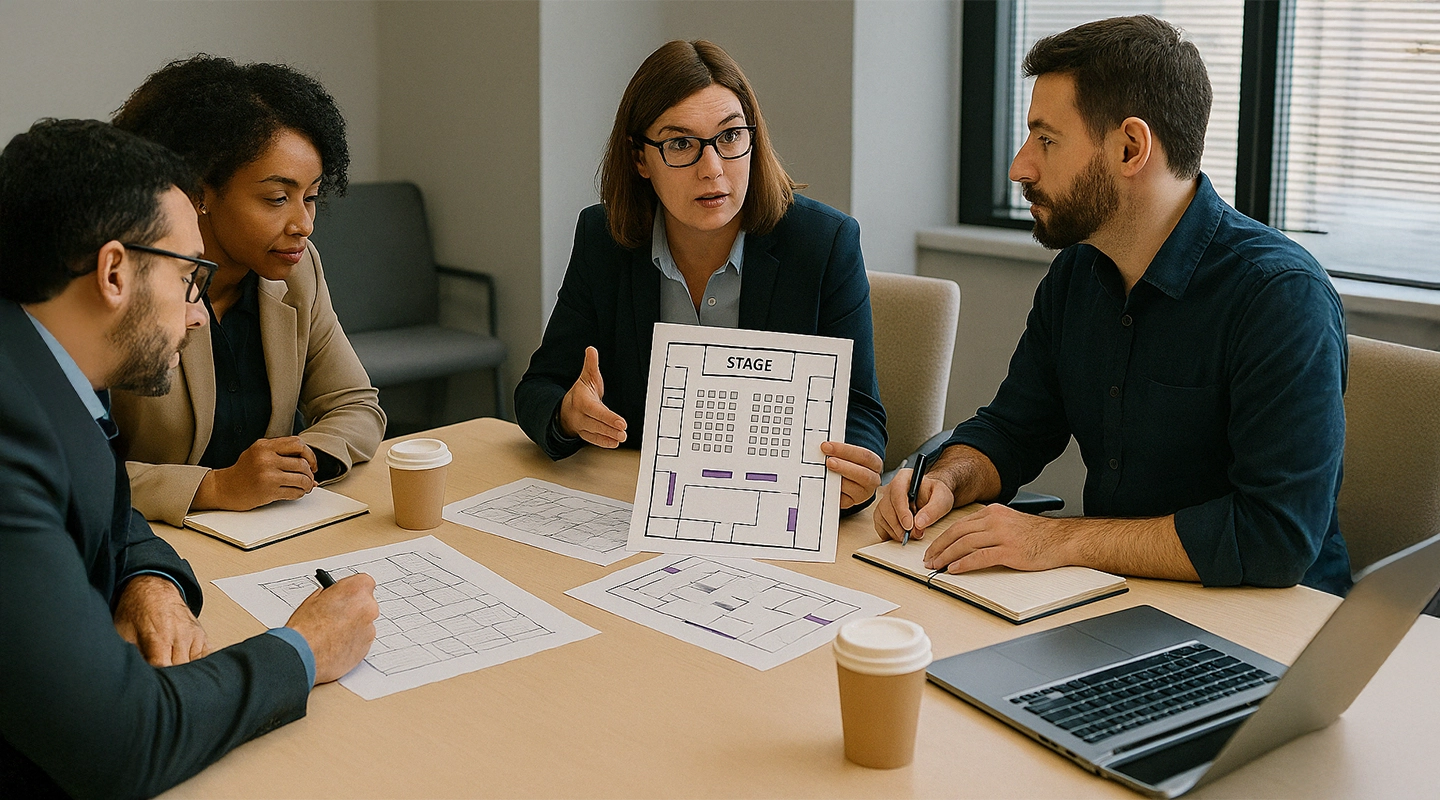
Corporate event planners manage logistics, budgets, and client expectations, ensuring smooth execution from start to finish. A successful event production company provides tailored logistical advice, transforming complex requirements into actionable plans for corporate event planning.
Planners handle budgeting to keep the event within financial limits. Acting as partners in the planning process, they work closely with clients to create tailored experiences that align with their vision, ensuring meticulous planning and execution.
Key Components of Event Production
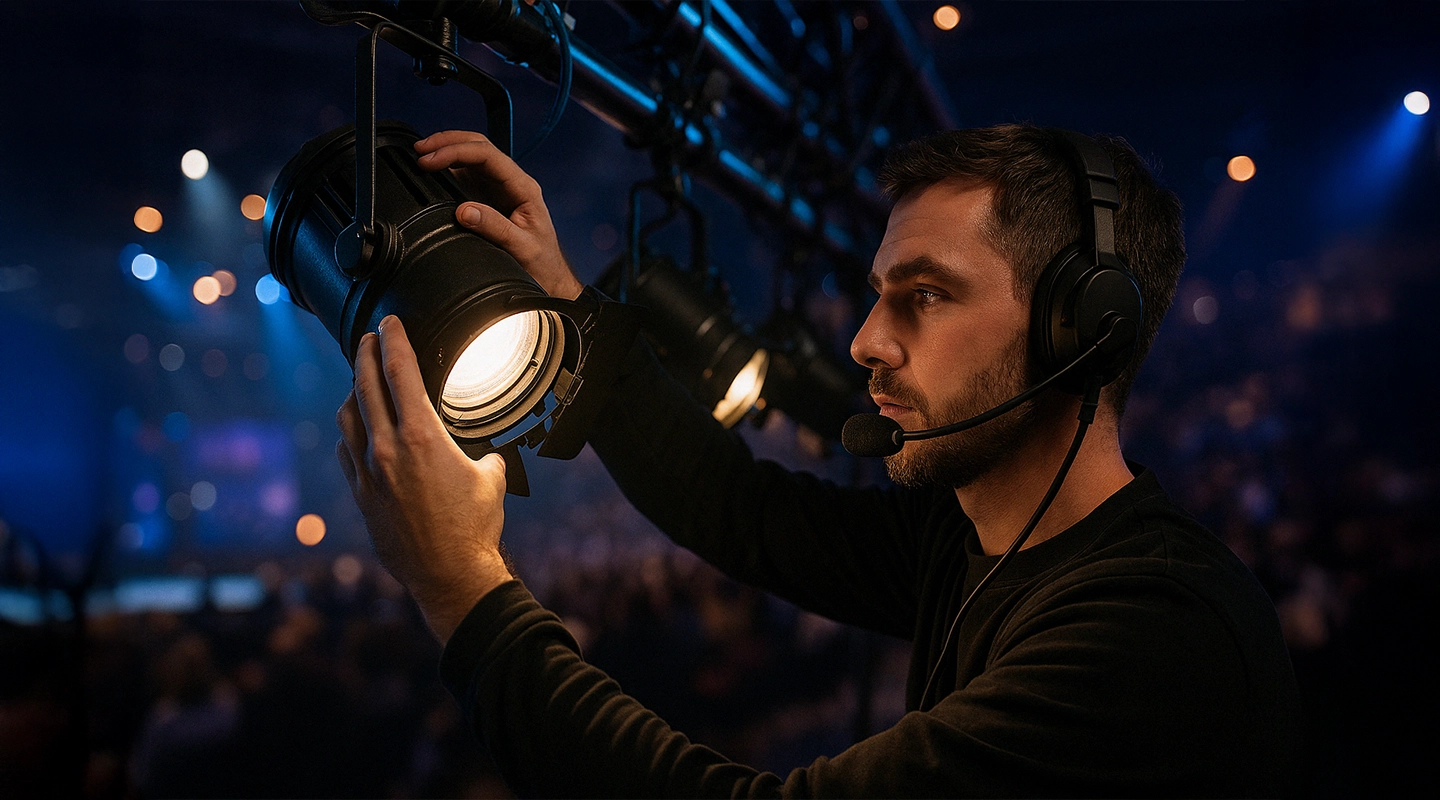
Key components of event production include:
- Staging, which sets the mood and engages the audience.
- Audio-visual solutions, which ensure clear and engaging presentations.
- Lighting design, which is crucial for creating a captivating atmosphere.
Lighting design dramatically affects the ambiance of an event. A dedicated team of specialists can create the perfect lighting setup to match the event’s theme and objectives.
Whisper-quiet generators provide necessary power without disrupting sound quality. Combining these key components ensures that event production companies deliver impactful events that leave a lasting impression.
Types of Corporate Events
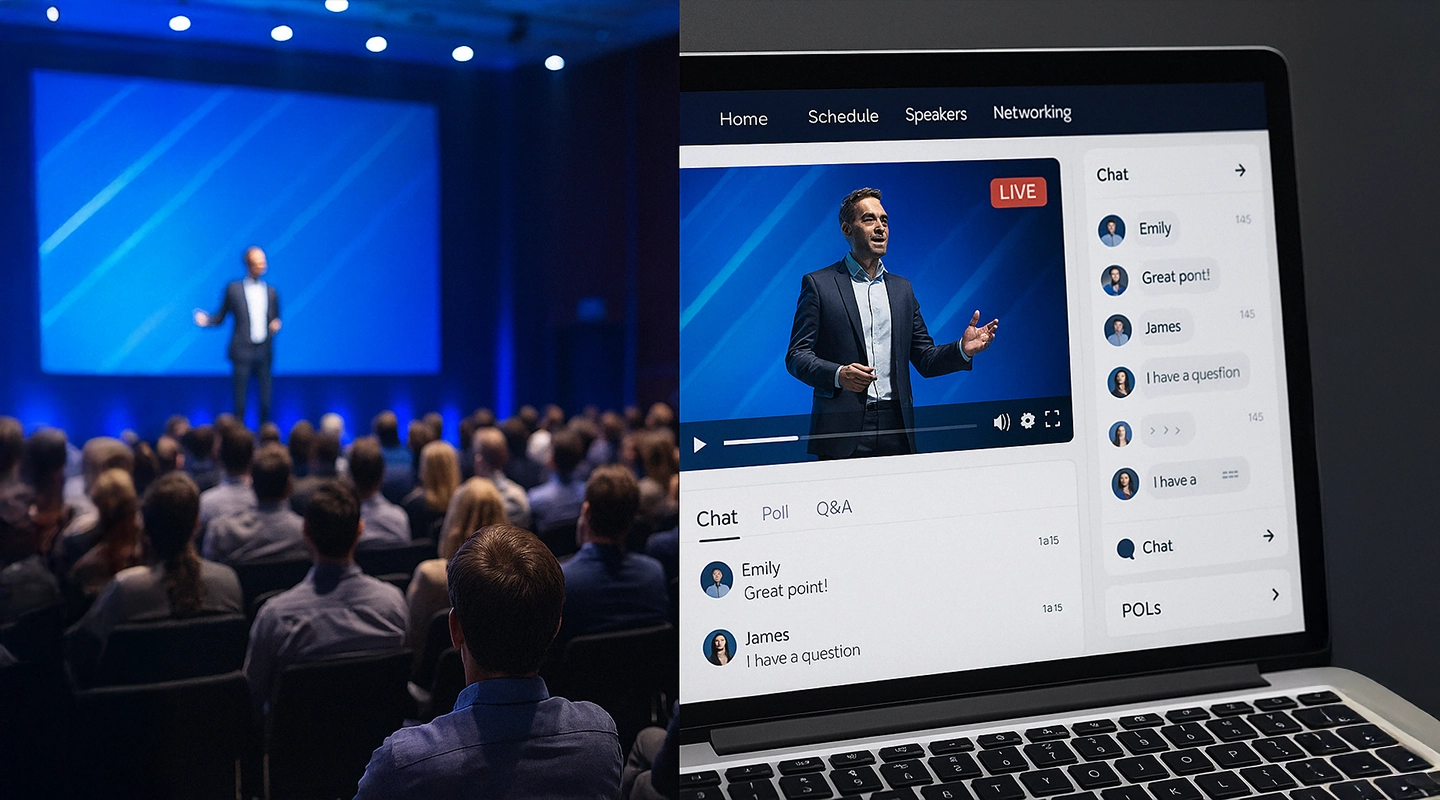
Corporate events come in various forms, each serving a specific purpose such as communicating company strategies, motivating staff, and supporting marketing initiatives. Goals include enhancing brand awareness and acquiring new customers. Event production companies can produce live, hybrid, and virtual events to meet diverse client needs.
Conferences and Seminars
Conferences and seminars provide valuable insights and promote networking opportunities, allowing professionals to exchange knowledge and build connections within their industry.
At conferences, attendees participate in presentations, panel discussions, and workshops aimed at enhancing industry knowledge and skills.
Building an Effective Event Production Team
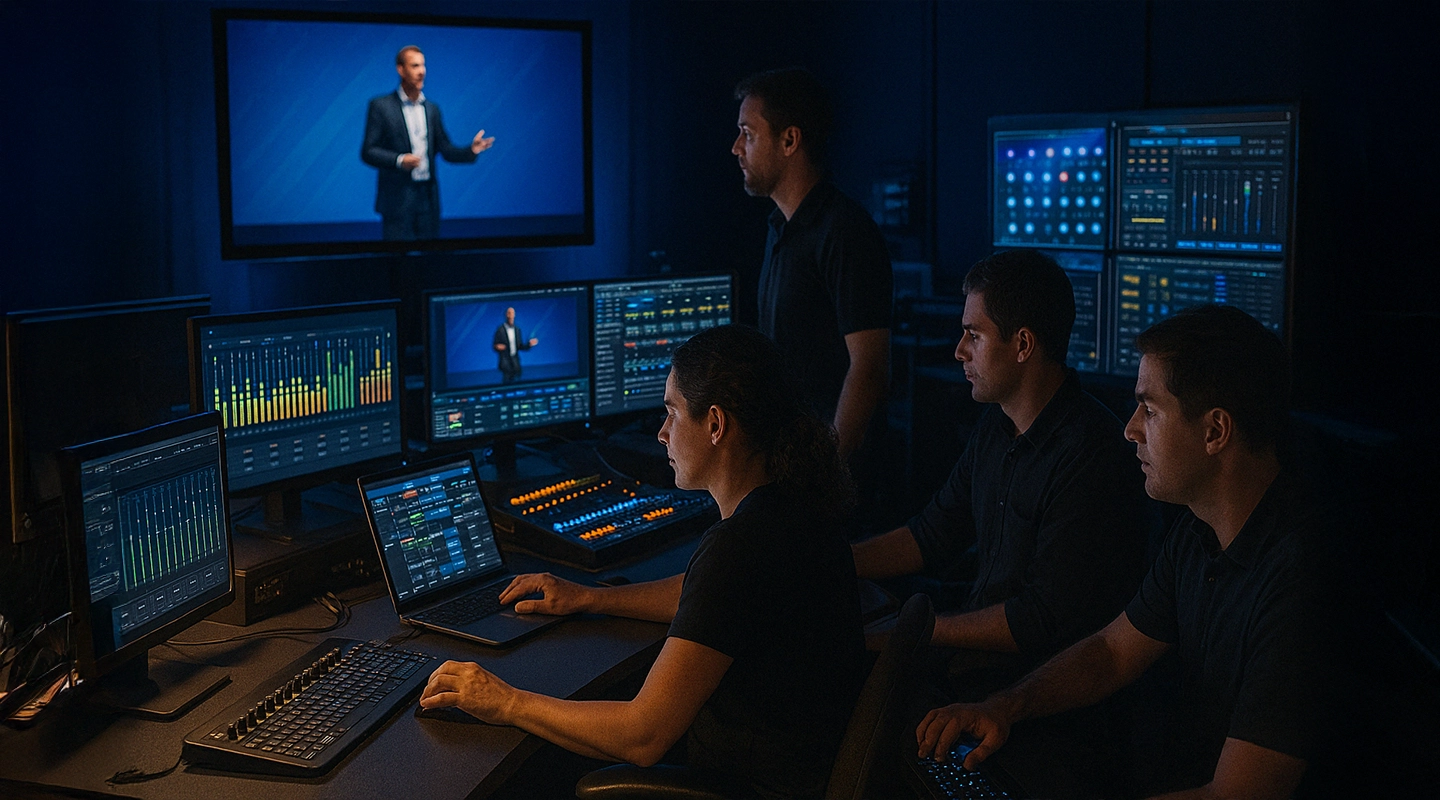
An effective event production team is vital for live event success, ensuring all logistical and technical aspects are managed efficiently. Producers and project managers lead the project, coordinating with various team members for seamless execution.
Essential Roles in Event Production
- Producer: Handles logistics and content development.
- Stage Manager: Oversees on-stage activities.
- Technical Crew: Manages audio-visual equipment setup and operation.
Creating an Engaging Event Design
Engaging event design captures the audience’s attention and makes the event memorable. Creative scenic design and effective staging enhance the atmosphere, making it visually appealing and engaging.
Scenic Design and Staging
Scenic design and staging set the mood and engage the audience. Creative scenic design enhances the overall atmosphere, adding visual interest and emotional resonance.
Audio-Visual Solutions
Selecting the right audio-visual equipment ensures clear and engaging presentations. Advanced projection technology enhances visual presentations, making content more engaging and accessible.
Overcoming Common Challenges
Common challenges in corporate event production include clients lacking a clear vision and logistical hurdles. Effective communication is crucial to avoid breakdowns in efficiency and maintain coordination among team members.
Dealing with Last-Minute Changes
Having a robust contingency plan helps manage unexpected issues, such as venue cancellations or speaker problems. Flexibility is essential for production teams to adapt to unforeseen circumstances and ensure the event runs smoothly.
Ensuring Reliable Crew and Equipment
Finding a trusted crew can be challenging due to freelancer availability, booking conflicts, and the risk of underperformance. Investing in relationships with crew members positively impacts their availability and willingness to prioritize your event.
Enhancing Audience Engagement
Enhancing audience engagement is crucial for the success of corporate events. Visually compelling event designs can significantly enhance attendee experience by making events memorable and impactful.
Interactive Elements
- Gamification (e.g., quizzes, scavenger hunts)
- Live polls and Q&A sessions
- Augmented reality experiences
Personalization Strategies
- Segmented attendee experiences
- Customized session recommendations
- Exclusive VIP perks
Summary
Successful corporate event production involves a meticulous blend of planning, design, and execution. By implementing key strategies and learning from real-world examples, event production companies can transform clients’ visions into reality, creating memorable experiences that resonate with attendees.
FAQs
What are the primary goals of corporate events?
The primary goals of corporate events are to enhance brand awareness, acquire new customers, and effectively communicate company strategies.
What is the role of corporate event planners?
Corporate event planners manage logistics, budgets, and client expectations, ensuring that tailored experiences align with organizational goals.
What are the key components of event production?
Staging, audio-visual solutions, and lighting design collectively enhance the overall atmosphere of the event.
How do virtual and hybrid events engage audiences?
They incorporate innovative technology and interactive elements like augmented reality and live polling to enhance participation and create immersive experiences.
How can event production teams overcome common challenges?
By implementing strong contingency plans, ensuring clear communication, and remaining flexible to adapt to unexpected changes.


